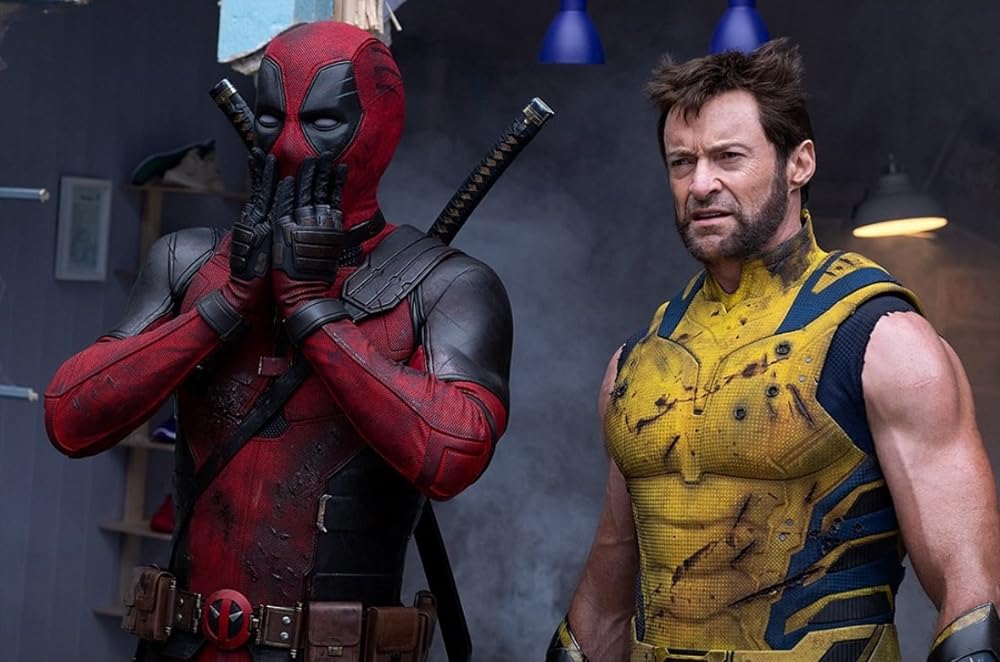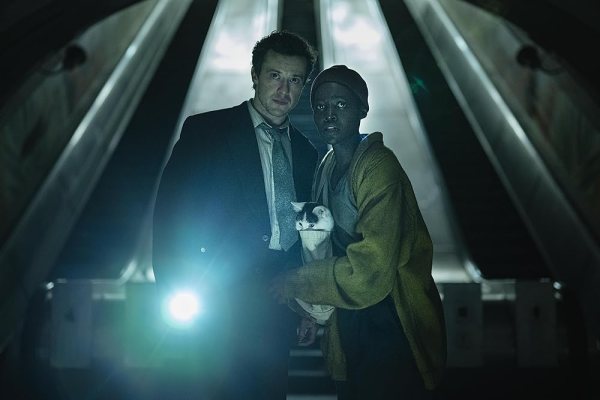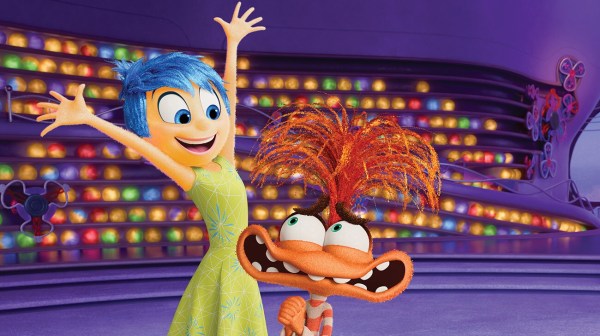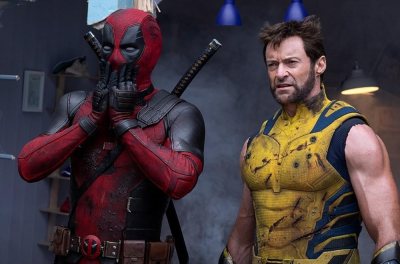When Ryan Reynolds starred in the original Deadpool back in 2016, the title character seemed edgy. In an era of bland superhero movies, along came a violent antihero with a potty mouth and a deranged sense of humor. That shock value made Deadpool a smash hit.
The Deadpool sequel two years later failed to meet its predecessor’s appeal, but a slew of flicks and shows went on to offer their take on the “superheroes being bad” premise. The Boys, Watchmen, Umbrella Academy, and Invincible, for example, all followed Deadpool with their own sets of f-bombs and sex jokes. Amid a cinematic scene flooded with Marvel’s “house style” of quips and generic action, these works drew audiences and some critical acclaim by being countercultural. At their best, they even provided insights about and criticism of the comic-book film genre.
All of which poses a problem for the recently released Deadpool & Wolverine. Now under Disney/Marvel’s tutelage after a prolonged merger with Fox, Reynolds is back in a new Deadpool movie that doubles down on the bad-boy energy of its predecessors. But almost a decade after the original, its formula now seems passe—as does the broader Marvel Cinematic Universe project that Deadpool once mocked and has now joined.
Deadpool & Wolverine follows the titular characters in a universe-saving journey. As the film opens, Wade Wilson (AKA Deadpool) is now a used-car salesman. He’s in the middle of something of a midlife crisis and, uncertain of his role in the world, has quit his career as a loose-cannon superhero and broken up with his girlfriend, Vanessa Carlysle (Morena Baccarin). Suddenly, Deadpool is abducted by Mr. Paradox (Matthew MacFayden) of the Time Variance Authority (TVA)—an extradimensional bureaucracy and police force responsible for preventing the multiverse (more on this soon) from spiraling out of control—and offered a path to being a real hero and finally mattering.
The catch: Deadpool is being given this opportunity because his universe is decaying following the death of Wolverine (Hugh Jackman), whom Paradox explains was the timeline’s “anchor being”—the core figure whose presence single-handedly keeps the universe stable. In Wolverine’s absence, Deadpool’s timeline will cease to exist in a few thousand years. Or it would, if Paradox didn’t plan on mercy-killing the doomed universe. Unwilling to watch his loved ones die, Deadpool goes rogue, steals timeline-jumping tech, and goes on a quest to find a replacement Wolverine from among the endless variants in the multiverse. He finds what the TVA considers the worst Wolverine of all, one who failed his universe miserably. Hijinks ensue.
Without the novelty of raunchy charm to skate by on, Deadpool & Wolverine’s weaknesses are glaringly obvious. The first Deadpool film in particular poked fun at the tropes of the superhero genre: excessive slow-mo, violent fight scenes set to dissonant upbeat pop music (and a lot of them), thinly-written villains who explain their plans in detail to the hero, and more. The new one openly features these conventions, but by now they come off as excessively conventional.
The film’s flashbacks in particular exemplify this. When trying to get the replacement Wolverine to open up, Deadpool cracks a fourth-wall joke about having to wait until the third act for flashbacks that reveal Wolverine’s trauma. The film then … proceeds to do exactly that. But calling it out doesn’t excuse lazy writing.
And then there’s the multiverse.
Alternate universes aren’t new to film or comic books in general, but the concept has exploded in popularity in recent years. To be sure, the idea of infinite timelines with infinite variations allows for interesting storytelling possibilities. Anything is possible in infinite universes. But a concept that was innovative and fresh when it first entered the mainstream has now been done to death. Doctor Strange, Avengers: Endgame, Spider-Man: No Way Home, Doctor Strange in the Multiverse of Madness, Ant-Man and the Wasp: Quantumania. And those are just the MCU films. Marvel TV shows have also featured multiverse-centered multi-season arcs, as have other shows and even an Oscar-winning film.
Marvel’s latest film bet that audiences would once again be captivated by a trip through the multiverse with all its whacky possibilities. Deadpool & Wolverine’s trailer introduced us to a gender-bent Deadpool, for example—but we’ve already seen Spider-Gwen and multiple Spider-Women in the Spider-Verse films, as well as a female Loki in Loki. And when fan-favorite actors from pre-MCU Marvel movies return in Deadpool & Wolverine, you can’t help but feel that it’s all been done before. After all, it has, both in Doctor Strange in the Multiverse of Madness and Spider-Man: No Way Home.
This is not to say a multiverse film can’t possibly work. But when it does, it’s because the multiverse is window-dressing to the plot. The Spider-Verse films, for example, are about Miles Morales learning to become a hero and his basic teenage struggles. Spider-Man: No Way Home follows Peter Parker as he tries to balance life as a hero with his private life. Everything, Everywhere All at Once is a heartwarming family dramedy about a mother reconnecting with her husband and daughter. These films used the multiverse to accomplish story-telling goals, but at the end of the day they were about something else. Deadpool & Wolverine is not. (Unless you count Deadpool trying to save his universe and loved ones, the most generic possible superhero story.)
This film’s inclusion in the Marvel universe instead of as a standalone Fox film bears part of the blame for its limited storytelling. So much time is taken connecting the movie to the Marvel canon and filling the screen with cameos and easter eggs that there is limited time to develop an actual storyline. Tellingly, the people Deadpool is trying to save—his supposed motivation for the entire film!—are barely onscreen. Joke cameo characters with no lines get more screen time than the love of Deadpool’s life, Vanessa. Deadpool’s motivations are underdeveloped, causing the movie to break film’s cardinal rule: Show, don’t tell. We are told that Deadpool loves these people, told that he felt insecure in his relationship, told that he wants to amount to something.
Based on its slate of upcoming films and what we know about them, Marvel seems to be setting up the multiverse as a way to untangle its interconnected universe rather than connect it further. The new Fantastic Four movie, for example, is set in another timeline, with Robert Downey Jr. playing Doctor Doom in a casting decision that’s baffling continuity-obsessed nerds who insist he can’t be both Doctor Doom and Iron Man.
With the latest entry in the MCU canon, it’s hard not to feel that the multiverse is dead—and that Deadpool & Wolverine killed it. It didn’t do so through some comic-booky “trimming of timelines” or “Deadpool Kills the Marvel Universe” way, but rather by showing that Marvel’s extended conceit has gone from an exciting new concept to downright cliché. There is nothing new under the sun, and even less new, it seems, under the multiple suns of the multiverse.







Please note that we at The Dispatch hold ourselves, our work, and our commenters to a higher standard than other places on the internet. We welcome comments that foster genuine debate or discussion—including comments critical of us or our work—but responses that include ad hominem attacks on fellow Dispatch members or are intended to stoke fear and anger may be moderated.
With your membership, you only have the ability to comment on The Morning Dispatch articles. Consider upgrading to join the conversation everywhere.